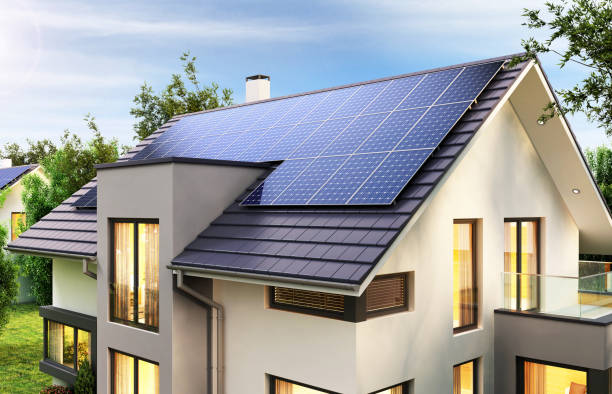
Why you need a Solar Energy System
Recently, the prevalence of solar power has led to many commercial businesses and individual consumers alike choosing to install solar panels in their homes and workplaces. However, solar power’s renewable and eco-friendly source of energy is not the only thing to consider when deciding whether or not to switch your household over to a solar system. Although the best solar companies make the solar panel installation process as simple as possible, it is still a lengthy and complicated process with many different factors and variables to take into account. If you are thinking about offsetting your carbon footprint and reducing your power bill by adding solar power to your home or business, our guide on the pros and cons of solar energy can help you decide if it is a viable option for you.
Fossil fuel is a resource that is gradually running out and, when burned to create energy, releases pollutants into the air. Solar power has the potential to help us reduce our reliance on fossil fuels and, consequently, the impact we have on the environment. Solar energy can serve as an alternative or supplement to purchasing electricity from a grid for most consumers. With the price of electricity increasing, switching to solar power has the potential to save consumers a significant amount of money every month on their power bills.
A home that is entirely reliant on solar power can function without being connected to the grid, particularly when supplemented with a solar battery system to store power for use during non-daylight hours. These battery systems can also provide backup power during power outages.
Although the initial cost of installing a solar system is high, it is often offset by savings on the electric bill. Consumers often see a return on their investment within six to 10 years, and then start experiencing the benefits long before the system needs to be changed or major maintenance. Solar systems only need to be lightly maintained so long as they remain unaffected by outside forces. If panels are kept clean and dust-free, they will usually keep working for many years without any other input from the consumer. There is a process called net metering, which allows consumers to sell back any surplus electricity their panels produce to the utility company, further diminishing utility bills. This can also reduce a community’s need for fossil fuels.
The versatility of solar energy allows it to not just power our homes and appliances, but also provide power to places where it would be impractical or impossible to get power from a grid. These places include remote, off-grid locations, satellites and boats. Solar power can have a significant impact on reducing a consumer’s electricity bill. Additionally, net metering allows many consumers to take advantage of rising electricity prices by selling back excess energy to the utility company. Since the early days of solar power, technology has progressed immensely. Advances are made on a daily basis. What is even more encouraging is that, despite these advancements, solar power has become more widespread, thereby making it more affordable to more consumers. On average, a consumer can expect to pay around N285,000 for a complete solar home solution setup.
If there is no sunlight, then a system that relies on solar power will not be able to generate electricity. This can be a problem for consumers who live in areas that get less sun exposure or have bad weather. Solar batteries that store extra energy can help reduce this issue. Even when it is constantly cloudy, the best solar panels will still be efficient enough in terms of cost and energy to be worth the installation.
The use of solar power instead of grid power offsets the emissions and carbon footprint of production within four years of use. Additionally, solar panels are recyclable, as they are made from glass, metal and silicon. The average solar panel will perform at its best for roughly 25-30 years. After this time, a solar panel can still generate electricity but may not be as effective and produce less energy. It is correct that solar panels will still function in the rain, but please note that production may not be as high as on sunny days. Solar panels can still produce at least 30 to 50% of maximum output during cloudy weather and about 10-20% of maximum output if it is raining heavily.
Solar batteries can serve as backup power on days with little sunlight for those who rely entirely on solar energy. and the amazing thing about solar panels is that it functions most effectively in dry weather. Therefore, If you are considering a solar solution to your energy needs, consult Greenpower; your partner for reliable solar solution

